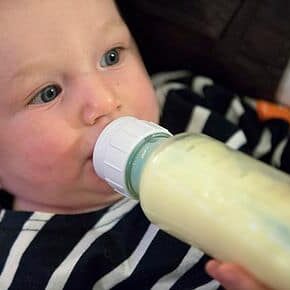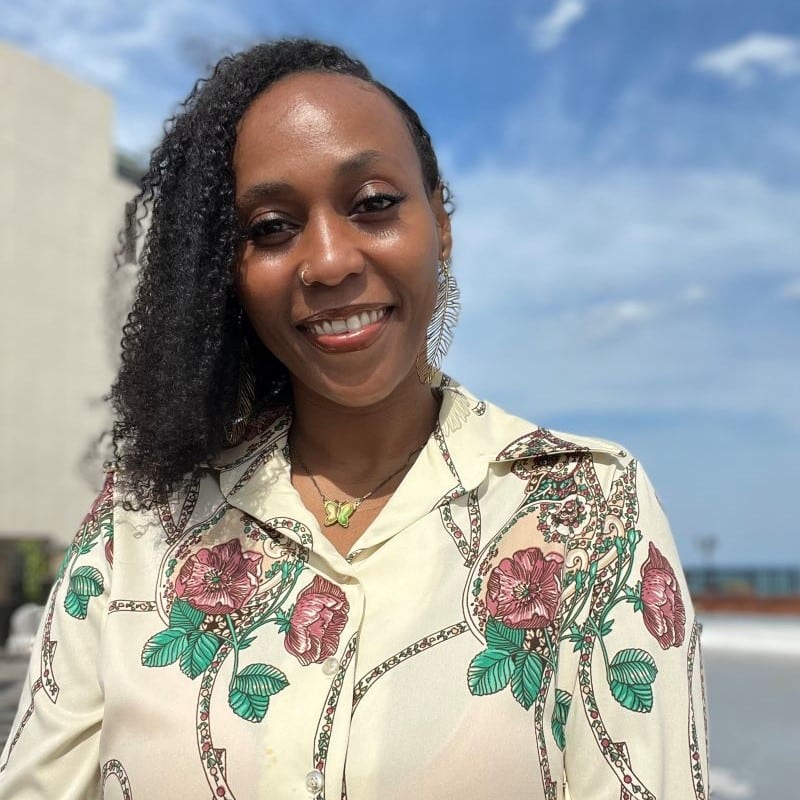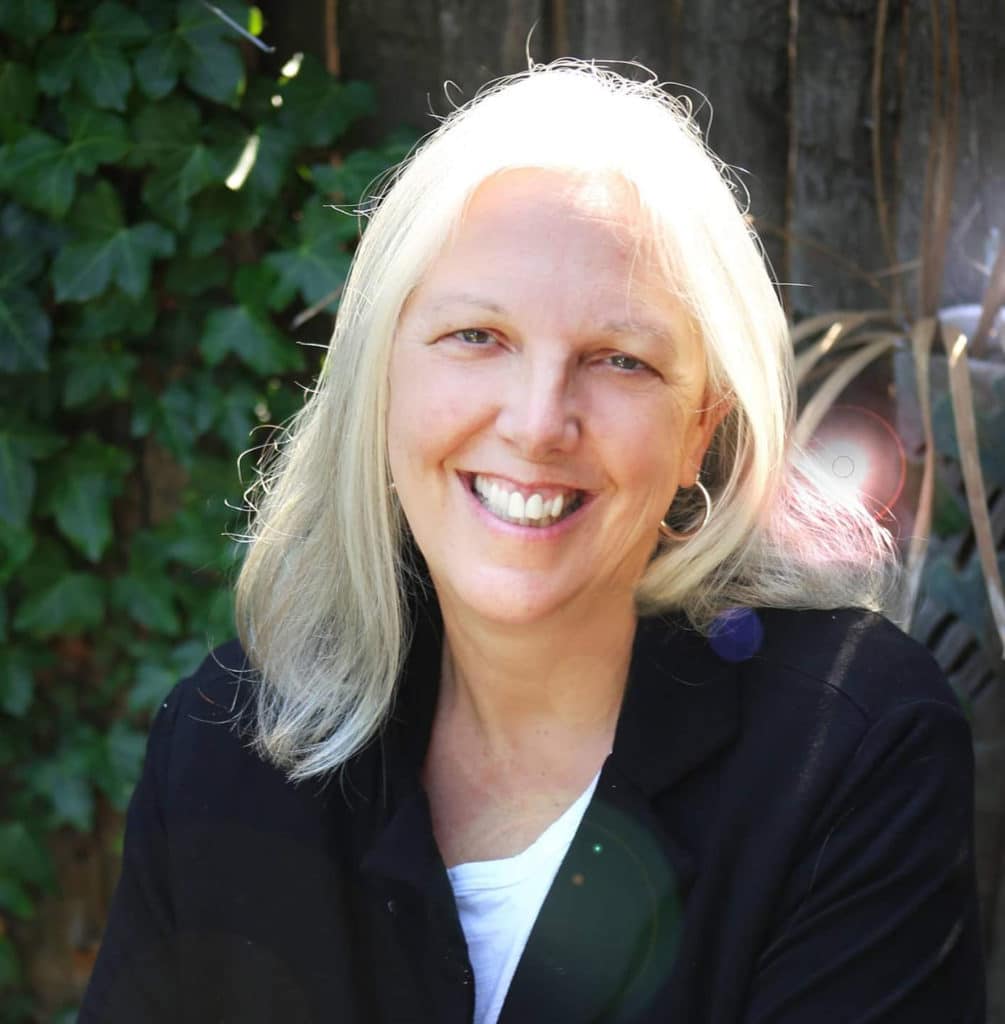Breastfeeding
Milking the Cow: How the U.S. is Prioritizing Baby Food Makers Over Actual Babies

Featuring Guest Author Angel Mattes, Doula and Lactation Educator at Collective Strength Doula Services
You may have heard the public outcry about breastfeeding and the Trump administration after The New York Times article that was published over the weekend. Evidently, a resolution was introduced at the World Health Assembly in Geneva in the “protection, promotion and support of breastfeeding” and in a move that surprised everyone, the US delegation not only disputed the resolution, but tried to dismantle the wording and power of the resolution, presumably to protect the interests of the lobbyists of the baby food industry, who happened to be in attendance. They then proceeded to threaten the countries who did support the resolution with trade sanctions and cutting crucial military aid. Some of the U.S. delegates even suggested that we might cut our financial contributions to the WHO. In the end, the Russian delegates stepped forward to support the resolution, and it went through without further word from the American delegation, albeit not in its original form. “The American negotiators won removal of language regarding inappropriate marketing tactics of infant formula from the final version of the resolution as well as inserting language that could be used as a ploy to undermine long established and successful breastfeeding initiatives,” described the US Lactation Consultant Association in a joint statement.
The Board of Directors with the United States Breastfeeding Committee put it succinctly, “When maternal and infant morbidity and mortality are at stake, any actions by organizations or governments that elevate corporate profit over public health is inexcusable.”
If you find this all very confusing, you’re not alone. There’s actually a lovely illustration of the issue by First Dog on the Moon.
In a tweet yesterday (since deleted), President Trump stated that the “U.S. strongly supports breast feeding but we don’t believe women should be denied access to formula. Many women need this option because of malnutrition and poverty.” To be clear, this was not a matter of breastfeeding vs. formula feeding, a “mommy war” this tweet is sure to perpetuate. Despite the President’s claim, this resolution would not have restricted access to formula, which is universally available. It instead focused on controlling the misleading and unethical marketing practices of breast milk substitutes; particularly those that would be harmful to babies and children. Further, Trump’s understanding of the relationship between formula and poverty is sorely lacking. Poverty conditions increase the need for breast milk, since it doesn’t cost anything (and formula is expensive), it’s immunologically protective, and it saves lives; there have been documented infant deaths in poverty-stricken countries where mothers were swindled into formula feeding under inappropriate conditions, attempting to prepare formula without clean water or the means to sanitize bottles. Introducing or recommending formula in these conditions only contributes to illness and death. Breast milk, on the other hand, is a perfect food for babies, even if the mother herself is malnourished. It’s been estimated that if most mothers breastfed, over 800,000 infant deaths would be prevented, every year (Lancet, 2016), along with an economic savings of $300 billion (!).
Although the Trump administration’s lack of support for breastfeeding policies (among other key health issues) has been disturbing, it’s hardly new, or even surprising, given our history. The formula industry is a $70 billion market, with large shares of their profits coming from Europe and the United States. Back in 1981, the WHO introduced the International Code of Marketing of Breast-milk Substitutes, which sought to rein in the marketing of breast milk substitutes in order to prevent infant illness and death, and the distribution of misleading and incorrect information to mothers and healthcare providers. 118 countries voted in support of the code; the U.S. was the only country to oppose it. We have failed to uphold international standards of breastfeeding policy ever since.
A disclaimer: this post is not at all directed at families who formula-feed, but rather at the institutional and political barriers that exist for breastfeeding mothers, in the interest of profit for formula companies. These barriers are insidious and largely invisible to the public. I absolutely support every mother’s right to decide how she wants to feed her baby, but the reality is that in our bottlefeeding culture, this is often only the illusion of a choice. Mothers are given misleading and inaccurate information about feeding their babies, and are not actually supported in their feeding choices. When formula companies strategically and intentionally try to make breastfeeding fail for new mothers, solely for the purpose of creating a new customer, we should take issue. When they pay top dollar to have design input for hospital maternity wards in order to make breastfeeding more difficult and irritating for the nursing staff, we should take issue. When our doctors and pediatricians give out false or inadequate breastfeeding advice on the daily – whether because our medical schools don’t prioritize lactation as a necessary learning component, or because formula marketers are permitted to “woo” them with vacations, sponsored products, and free samples – we should take issue. When the benefits of breast milk are disputed, when every bump in the breastfeeding road is met with a suggestion of formula as the answer, and when breastfeeding is no longer the norm, it becomes an actual fight to breastfeed successfully. We can absolutely support formula-feeding mothers while fighting formula marketing. Call me crazy, but it’d be nice to live in a world where women could make their own choices, based on factual information, and receive actual support for that choice.
Breastfeeding advocates everywhere are absolutely disheartened at our government’s dismissal of their responsibility to preserve global health, and the effect that their involvement has on that goal. We are all deeply concerned about the elevation of corporate interests over the health of mothers and babies around the world. We are all too familiar with the personal, social, financial, and institutional barriers to breastfeeding. This is another area where policy dictates outcomes, and our refusal to comply with international breastfeeding policies will continue to make babies sicker and result in preventable deaths around the world. Where do we turn our attention to keep fighting the good fight? As Lucy Sullivan writes in her statement on the U.S. opposition to the breastfeeding resolution:
“We are pleased that the public outcry over the U.S. Government’s actions at the World Health Assembly elicited statements from President Trump and others in the Administration claiming that the U.S. supports mothers and breastfeeding. If this is in fact the case, the Trump Administration will work to finally put in place a comprehensive paid family policy in the United States that covers all workers, gives all parents the time they need to care for their babies and enables women to reach their breastfeeding goals.”
There are so many layers to this issue, and so many ways in which we are all impacted. I hope you’ll join us in fighting for mothers and families.
Links to check out:
-
Read the breastfeeding resolution that was introduced
-
Take action! Complete the sign on form from the USBC by Friday, July 13 to be added to the letter to the Department of Health and Human Services and Department of Commerce
-
Know your history – read “The Controversy Over Infant Formula” & watch this Video on the importance of the code, by IBFAN (International Baby Food Action Network)
-
Behold the power of Breast milk – read Your Walking Medicine Chest
-
Understand breastfeeding in America. Read – A Tale of Two Births: What should happen vs. what actually happens and Booby Traps: The Inconvenient Truth About Breastfeeding
-
Check out & support initiatives at The Milky Way Foundation; a family-friendly NICU, workplace lactation support, milksharing programs, breastfeeding art, & a coalition for maternity & family leave in the US
Angel Mattes is a Doula, Lactation Educator, CPST, and mother of three. She has worked with Birthways since 2012, and is now supporting families in northwest Arkansas, where she runs Collective Strength Doula Services. She is a firm believer in the power of information and support, and enjoys helping new parents find their confidence.



























